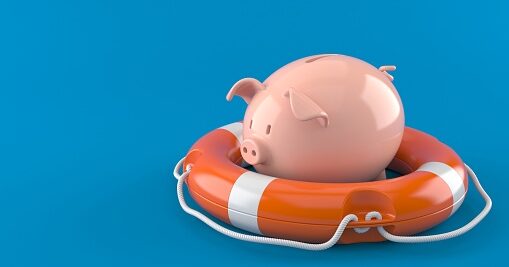Are you prepared for an unexpected expense?
Whether it’s a car repair, a broken appliance, a medical bill, an urgent need to travel, or another unexpected expense, the fact is, emergencies happen to everyone. A CNBC article cited a Bankrate financial security index survey that found that 34% of American households experienced a major unexpected expense within the past year. That same survey revealed that only 39% of the respondents said they had enough savings to cover a $1,000 emergency.
That’s why having an emergency savings fund is so important. Even if you live within your means and consider yourself financially comfortable, if you don’t have an emergency savings fund, you could be setting yourself up for trouble in the future. Without having some money put away for a “rainy day,” you put yourself at risk for having to pay for an emergency expense with a credit card. Putting a large expense on a credit card could lead you into an unfortunate cycle of revolving high-interest debt.
While you might not think you have room in your budget to allocate toward savings, building an emergency fund should be a priority. Here are some tips you can use to start socking away money for your future rainy days.
Your emergency savings account should be its own designated account —not shared with your retirement or vacation fund, or any other type of savings. Avoid dipping into the account for anything other than emergencies.
Choose the right account
When setting up your emergency savings account there are two things you should consider – earning power and fund accessibility.
The account you choose for your emergency savings should offer a competitive interest rate so that your money will grow faster. Also, keep in mind how easily you will be able to access your funds. For example, a savings account or money market account will give you more flexible access to your funds than a Certificate of Deposit (CD). In an emergency you will need to retrieve your money quickly, so a CD, even though it may offer a higher interest rate, may not be the best account for your emergency funds.
Start small
You don’t have to open your emergency savings account with thousands of dollars. It’s ok to start small, such as saving just $10 or $20 a week. In time, your account will grow. If you save $20 a week, in one year your account will be over $1,000, which might cover the cost of a repair or medical bill.
Save automatically
One of the easiest strategies for growing your emergency savings account is to set up an automatic savings plan. With an automatic savings plan, you can specify a fixed amount of money to be transferred from your checking account to the savings account on a regular basis (i.e., every week, biweekly, monthly, etc.) You can also set up a percentage of your paycheck to go directly to your savings account. An automatic savings plan will help you remain consistent with your savings. Read this blog to learn more about how an automatic savings plan can help you reach your financial goals.
Every now and then, life throws a curve ball. Having an emergency savings account can help you manage those unexpected expenses and stay on the right financial track.
The information provided in this blog post is for informational purposes only. It should not be considered legal or financial advice. You should consult with a financial professional to determine what may be best for your individual needs. Omni Financial does not endorse, recommend or imply affiliation with the listed companies or organization.

Friendship Rewards Program
Refer a friend and get a $25 Omni Gift Card



